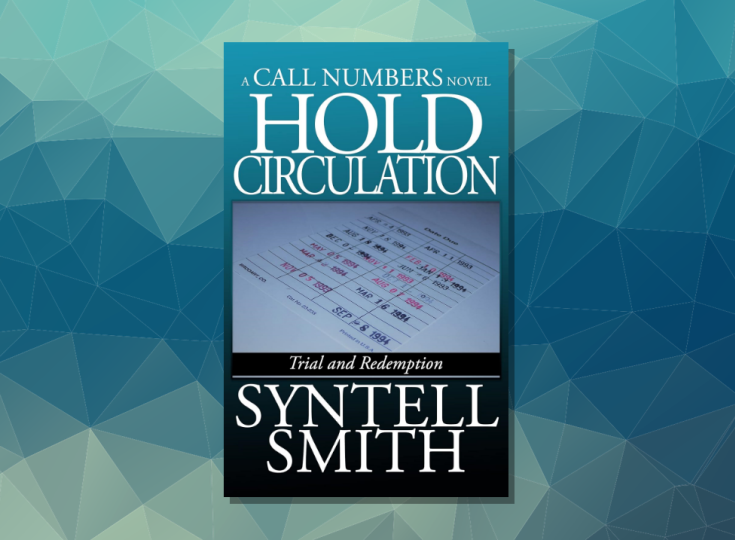Editorial Review: Hold Circulation by Syntell Smith

Hold Circulation is the third book in Syntell Smith’s Call Numbers series, focusing on the lives of library staff in New York City in the 1990s. But these are not quiet librarians shushing loud patrons, instead, the 58th Street Branch Library serves as the setting and the connecting thread through many personal dramas and discoveries.
This is an ensemble story that focuses on complicated personal relationships, in an ongoing series, so there’s a bit of a slow start. The book opens with a recap briefly explaining what happened in the previous novels, but I still found myself asking who this character is and what their connection with the last character is, and flipping back to check. But once readers get a handle on the wide cast of characters, Hold Circulation can be read as a successful standalone because the ending has satisfying, relevant conclusions of almost all the story arcs. A few open questions provide the equally satisfying feeling that life goes on after the book ends, a perfect fit for the slice-of-life atmosphere in this novel.
As the novel unfolds, the characters -- even extremely minor characters -- begin to feel like real people. This takes a little while to come through, but it’s well worth it. The perspective shifts from one character to another, taking readers through the interconnected storylines. There are no wasted scenes, even minor events contribute to developing these characters fully. Our main characters are layered and interesting, with private struggles and interpersonal conflicts, with both affectionate and complex relationships, and all with their own goals and dreams.
The 58th Street Branch Library ties all these storylines together. It’s the source of great upset, as one of the branch’s upper managers is dishonest and unscrupulous, which puts strain on the other characters and adds tension. The library is also the source of friendship and camaraderie, and some moments of great humor as the librarians field ridiculous questions from patrons.
The novel also takes on issues of stereotyping and bias. Readers can see how characters are treated or mistreated based on their appearance. This is often racial and ethnic stereotyping, but at times it’s social class, and a young woman is judged for her visible pregnancy, too. This look at surface judgments helps to highlight the complex interior characters of this ensemble novel.
I really enjoyed the 1990s library setting on a personal level. I spent a fair amount of time in my local library around this time, and so some of the descriptive details felt warmly familiar. I also enjoyed imagining all the power struggles, interpersonal conflicts, and secrets of this novel all happening just a few feet away from the reading benches and peaceful study carrels on the library floor.
Overall, Hold Circulation is a solid addition to the Call Numbers series, adding new events in our characters’ lives and developing their relationships and personalities further. By developing these characters so well, the author highlights each personal struggle, which makes a compelling story.





